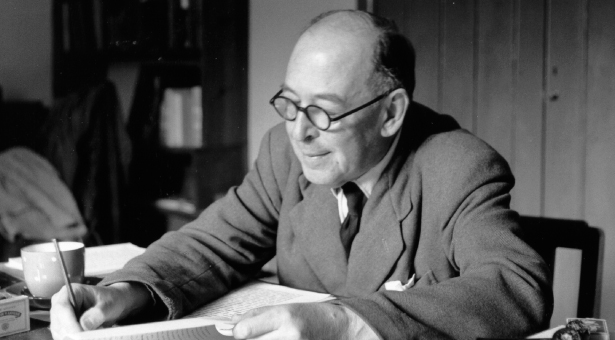Dear Brothers and Sisters,

People turn away from belief in God for many reasons, but one of the most prevalent is “the problem of evil”—what theologian Peter Kreeft calls “the greatest test of faith, the greatest temptation to unbelief.”
Agnostics and atheists often use the problem of evil as their go-to argument to either doubt or deny the existence of God. Their claim is that the co-existence of evil and God is either unlikely (agnostics) or impossible (atheists). This line of reasoning goes back as far as the Greek philosopher Epicurus (c. 300 BC), who made the following statement that, in the late 1700s, was picked up and popularized by Scottish philosopher David Hume:
Is God willing to prevent evil, but not able? Then he is not omnipotent. Is he able but not willing? Then he is malevolent. Is he both able and willing? Then whence cometh evil? Is he neither able nor willing? Then why call him God?

(public domain)

(public domain)
Epicurus, and Hume after him, were painting a less-than-godly picture of God. I don’t have room here for a comprehensive reply (what theologians call a theodicy), but I do want to point out that this line of reasoning doesn’t come close to being a knock-down argument against the existence of a good God. As pointed out by many Christian apologists, the existence of evil in the world, rather than disproving God’s existence, proves just the opposite, as I’ll now explain.
Evil necessitates goodness
The observation that evil is an objective feature within our world is a double-edged sword that cuts agnostics and atheists much more deeply than it cuts theists. To argue that the presence of evil in the world disproves the existence of God, one must affirm that evil actually exists. It follows that there must be an absolute standard of goodness that defines evil as being evil. One simply cannot form a logical concept of evil without appealing to an ultimate standard of goodness. This leads to a huge dilemma in that it raises the question of the source of this standard. Said another way, if evil is the opposite of good, how do we determine what is good? And where does that understanding come from?
We are told in the book of Genesis that the world was created good, not evil. Yet, Genesis also tells of the fall of humankind—a fall caused by evil and resulting in evil. Because of evil, this world is not the best it can be. Thus the problem of evil points to a departure from the way things ought to be. If things are not the way they ought to be, then there must be a way they should be. If there is a way they should be, there must be a transcendent design, plan, and purpose for the way it should be, and if so, there must be a transcendent being (God) who authored that plan. If there is no God, then there is no way things ought to be, and hence there is no evil. All this might sound a bit confusing, but it’s not. It’s a carefully constructed line of logic.
Injustice necessitates justice
C.S. Lewis championed this logic. In Mere Christianity, he shares how he had been an atheist, due largely to the presence of evil, cruelty and injustice in the world. However, the more he pondered his atheism, the more he saw clearly that the concept of injustice was dependent on an absolute concept of justice. Justice necessitates a just Someone who is beyond humanity and has the authority to shape created reality and promulgate the rules that define justice within that reality. Moreover, he came to see that the origin of evil is not God the Creator, but the creatures, who falling into the temptation to distrust God, chose to sin.

Lewis came to see that if humans were the source of what is good and evil, they could not be objective since they were subject to change. Further, he deduced that one group of humans may pronounce verdicts on others as to what is right and wrong, but then the other group would impose their own version of right and wrong. Then the question would have to be asked as to what authority stands behind these competing versions of right and wrong? Where is the objective standard when what is unacceptable in one culture is deemed permissible in another? We see this dilemma at work throughout the world, often (unfortunately) in the name of religion and other ideologies.
The bottom line is this: if no ultimate creator and moral lawgiver exists, there can be no objective standard of goodness. And if there is no objective standard of goodness, how can anyone discover this to be the case? Lewis made this point with an illustration: “If there were no light in the universe, and therefore no creatures with eyes, we should never have known that it was dark. Dark would be a word without meaning.”
Our personal and good God overcomes evil
Only if there is a personal and good God who is opposed to evil does it make sense to lodge a complaint against evil or make an appeal to have something done about it. Were there no such God, there would be no one to appeal to and no basis for thinking that what we call good and evil is anything more than our personal preference (which we would label “good”) being in conflict with someone else’s personal preference (which we would label “evil”). In that case, there would be no such thing as objective evil, and thus nothing really to complain about, and certainly no one to complain to. Things would simply be the way they are, call them what you like.

Only by believing in a personal and good God do we have grounds to object to evil, and Someone to appeal to for its eradication. Having the conviction that there is a real problem of evil and hoping that evil will, one day, be undone and everything put right, serves as a good reason to believe that a personal and good God exists.
Though evil lingers, God is with us and we have hope
Evil exists—the evidence is all over the news. We’ve experienced evil and know its destruction. But we also know that God did not leave us in our fallen state. As I pointed out in a Weekly Update article a couple of weeks ago, God was not surprised by the fall. He did not need to revert to a plan B, for he had already set in motion his one plan to overcome evil, and that plan is Jesus Christ and the atonement. Through Christ, God overcame evil by his authentic love, and he had his plan in place from the foundation of the world. In the cross and resurrection of Jesus we see that evil will not have the last word. Evil has no future because of what God, in Christ, has done.
Do you yearn for a God who confirms that there is evil, who graciously takes responsibility for it, who is committed to doing something about it, and who will make everything right in the end? If so, I’ve got good news for you—that’s exactly who the God revealed in Jesus Christ is.
Though we live in a time Paul calls “the present evil age” (Galatians 1:4), God has not abandoned you, nor left you without hope. [1] God reassures us all that he is with us, having broken through to us in the here-and-now, and therefore giving us the blessing of experiencing the “firstfruits” (Romans 8:23) of the “age to come” (Luke 18:30)—a “deposit” (Ephesians 1:13-14) of the goodness of God’s rule and reign as it will be in the fullness of his kingdom.
Today, by God’s grace, we embody through our life together in the church, the signs of God’s kingdom. The triune God, living in us, enables us to taste, even now, the relationships he originally designed for us to enjoy in communion with God and one another—true life never-ending and without evil. Yes, we have our struggles on this side of glory, yet we are comforted knowing that God is with us—his love lives in us at all times through Christ—by his Word and Spirit. As Scripture assures, “The one who is in you is greater than the one who is in the world” (1 John 4:4).
Grateful to our good God who has overcome evil,
Joseph Tkach
[1] For another Weekly Update letter on the hope that is ours despite the presence of evil in the world, click here.



Here’s the C.S. Lewis quote in the extented version…
“My argument against God was that the universe seemed so cruel and unjust. But how had I got this idea of just and unjust? A man does not call a line crooked unless he has some idea of a straight line. What was I comparing this universe with when I called it unjust? If the whole show was bad and senseless from A to Z, so to speak, why did I, who was supposed to be part of the show, find myself in such violent reaction against it? A man feels wet when he falls into water, because man is not a water animal: fish would not feel wet. Of course I could have given up my idea of justice by saying it was nothing but a private idea of my own. But if I did that, then my argument against God collapsed too-for the argument depended on saying that the world was really unjust, not simply that it did not happen to please my fancies. Thus in the very act of trying to prove that God did not exist-in other words, that the whole of reality was senseless-I found I was forced to assume that one part of reality-namely my idea of justice-was full of sense. Consequently atheism turns out to be too simple. If the whole universe has no meaning, we should never have found out that it has no meaning: just as, if there were no light in the universe and therefore no creatures with eyes, we should never know it was dark. Dark would be a word without meaning.”
-C.S. Lewis
Mere Christianity
I’ve also heard it explained that the presence of evil and suffering does not disprove the existence of God. It may begin a discussion about the character and nature of God, but not his existence.
Dear Ms/Sir/Moderator,
I would like to write relatively briefly on this subject of evil, as it has been disturbing me for a little while now (about 1-to-2 years now).
I am a ‘theist’, I believe God exists. I am not an agnostic, nor an atheist.
However, I find it hard to understand how God could create, or ‘allow’, or ‘provide’, or ‘set-up’ the environment for evil to come to exist. The only conclusion I can, at the present time, ‘tentatively’ come to, is that God created, caused, and/or ‘needed’ evil to exist. How is this?
I admit I haven’t read the whole article you write, yet, but in the part I have read, it says that we wouldn’t know good if it wasn’t compared/contrasted with evil – the opposite (my paraphrase).
One question here is this: Why would God, who from eternity (before anything else existed), existed without evil (no presence of evil – I presume); then create his creation (Man, the Universe, all existence (including angels, Lucifer/Satan, etc.) with evil also becoming a part of the creation, and extant? One answer I speculate on is that we (humans) when compared to God are ‘like’ mosquitoes – when mosquitoes are compared to humans (a rough and imperfect analogy).
When we swat a ‘mozzy’, we don’t think we have sinned or done something evil. So, what I guess I’m getting at is that on the ‘human’ plane or dimension, the evil that happens is relevant/’proportionate’, and applicable to us; but on the Godly plane – being an infinitely higher, or different dimension, the designation ‘evil’ does not apply. I don’t know if this is correct. I am only speculating. It’s hard to understand.
For example: We are told in the Bible that God cannot lie. That’s agreed. Yet ‘obviously’, we are also told that God can kill, or take life – and explained to us that that is because, as the author of life, He can, and has the authority to do so. This seems to make sense and logic. However, it also could be asked how come then, that lying, being a ‘lesser’ form of ‘negative conduct’ or activity is prohibited to/by God – He cannot do this – unlike killing; What about stealing, then, or some other, ‘lesser level’ type of infraction (as we would understand it)?. How does this match up? What can be understood here?
Also, James 4: 17 states that (to paraphrase), ‘He who knows to do good, but doesn’t do it – to him it is sin.’ God knows to do good. But there is a lot of pain and suffering in the world, including through “natural” events, and unfortunately not much seems to happen to remedy, and ‘do good’ in these situations.
‘Allowing’bad things to occur, – no, it is not “allowing”. Nothing happens unless God, not only ‘allows’ it! How can it be other than that He knows, plans, has planned, or is agreeable to, or wants it to occur, anyway? Like in Job, is it (speaking ‘humanly’), like being an ‘accomplice’?
This question reminds me of a scripture in the Old Testament (sorry-can’t remember reference) where one man accidentally injures or kills another, and the scripture says something like, “and the Lord doesn’t intervene” – then it goes on about the cities of refuge. These few words seem to indicate or hint at how closely God is involved in all that happens-that God, conceivably, suggested by the above few words – could (if He wanted to) have intervened to change the event. This seems obvious and logical. I believe we are to learn all sorts of things during our time here. The method, and variety of these experiences, and tragedies that occur leave questions, though.
In another part of the Bible (I think it might be Romans-off the top of my head, just now) it says (again, to paraphrase): ‘Love worketh none ill (KJV I think).’ Again, in James, it says to not only say ‘Be well, go your way’, but to ‘produce fruits’ and give material help to those in need when we can. Are these scriptures just for us? – and not for God to consider also?-especially James 4: 17? – and possibly more so since Christ became human and is now still identified with us, intervening as advocate on our side, for us?
We need more input from God!
The presence and existence of evil does not lead me to disbelieve the existence of God. It questions my confidence in the ‘Goodness’ and ‘Love’ of God, and how He relates with us. Again, “Love worketh none ill.”
Just a few other points to mention. From 1 Peter 1: 20 ‘He was chosen before the creation of the world,’ (NIV 2009) indicates the fall was inevitable. Adam and Eve were going to sin/fall/whatever. Even if it was another people, another event, it was inevitable that sin would enter – this is what God planned to happen. Otherwise Christ’s predestinated role of Saviour could not apply (if Adam and Eve resisted satan). This situation is acceptable, I guess, in that it is obvious that humanity needs, and not just humanity, but ALL EXISTENCE (which is greater, probably, than the universe, or multiverses, etc) to recognise , be grateful, and worship God for the grace and fact of existence.
It’s just that the level of evil and suffering, and the unfathomable ‘gratuitousness’ of so much of it, that leaves one not only disenchanted and numbed, but, dare I say it?, in a ‘bad attitude.’ If the hardship (without God’s intervention and comfort) is excessive there is some risk of it coming to feel like an experience of brutalisation – and this won’t ‘help’ anyone. This won’t deliver, or promote a ‘good attitude’ in anyone. This would be ‘fear religion’!
I remember hearing a sermon where, a poem was read at the conclusion, and asking/stating how can a person know how to love, unless he has been shown and given love first. It mentioned some other positive qualities (fruits and gifts of the Spirit, I guess) such as gentleness and kindness. Of course, the ‘answer’ really is to hope that someday God will change the heart of stone (nature) of humanity. This is stated as a unilateral action by God – I think in Jeremiah.
Another scripture is Genesis 3:22 where the Lord said, “The man has now become like one of us, knowing good and evil, …” (also stated by satan in Ge. 3: 5-(a ‘half-truth’)). Whatever ‘knowing’ means, it indicates God’s awareness/acquaintance,- I can’t find the right word for it – but God was already there – way ahead of Adam and Eve: He wasn’t surprised by what had happened (maybe in connection with satan’s rebellion earlier, and input, here – that’s another issue – of satan’s ‘capacity’, volition, intention, attitude, ‘functionality’ etc., by/when he sinned).
Another area of concern for me is what some Bibles title in Matthew 2: 13-23, the ‘Slaughter of the innocents.’ Herod sends his troops to murder all the boys in Bethlehem under the age of two. This was a prophecy from Jeremiah 31: 15. I cannot understand the significance, or necessity of this prophecy. As a believer, one can point to fulfilled prophecy. In the secular world, as is written in the “Case for Christ Study Bible” – general editor: Lee Strobel, on page 1317, ‘The problem: there is no independent confirmation that this mass murder ever took place’ – Adapted from interview with Dr John McRay.
I don’t understand the ‘necessity’ of this event. I won’t expand on this, with relation to my trust in God.
One statement of scripture I find contradictory/inconsistent, which may need some exposition and exegetical analysis is where Job (to paraphrase)says: “Though He slay me, yet will I worship/(‘hope’ – in NIV) in Him”(Job 13: 15). What is really meant here? The first point that comes to mind is the scripture: “by their fruits you will know them.” Also, again,”Love worketh none ill.” And again, in the model prayer,”… keep us from sore trial …”. This seems to contrast with “rejoicing when you experience trials of various kinds” (James 1) (I know, put this James quote in context!). However, when trials come one quickly “knows” the difference between good and bad (usually), and one doesn’t need to have “mind games” played with them with such assertions that it is somehow ‘good’ to be ‘slayed’ (based on a ‘normal’ understanding of a situation). If taken out of balance, or interpreted wrongly, one could confuse God with satan – satan’s name means ‘destroyer’, doesn’t it?
One could note here, that Job did not ‘attack’, or address satan at all (from my reading) in his protestations, but directed all his complaints, entreaties, and protestations “of his integrity” to God. Job knew who was the “Big Boss”, so-to-speak, and who to go to for alleviation of his distress. Might I add another observation/speculation, and that is when God was asking Job the ‘challenging’ questions, of ‘where were you when I created … ?’, – even though the situation would not have been conducive for this thought to have come to mind, and it may also have been possibly somewhat disrespectful to answer back, Job, hypothetically, could have answered and said, ‘I am your creation also.’ ‘Help me!’
There are more thoughts to consider, but I feel these are enough for now. To summarize, I feel we need more help, input, encouragement, relationship, support, leadership, guidance, enablement, direction, response, experiential strengthening from God – in a more real, dynamic and personally obvious manner, way, and meaningfully purposefull dynamic that impacts, and helps one’s life for the positive. Alternately, even a ‘still, small voice’ that is realised to come from God, is also greatly to be desired.
In a similar manner to how God did not need to experience evil to know that good was good, a similar “dynamic” could (possibly)have been used for humanities’ experience, growth and learning (all things are possible with God).
Also, as with any induction program, or eg., basic training in the army, police, etc., it can be arduous, but suitable for the result, or aim that is sought. It shouldn’t be necessary (nor needful) to be excessive, or risk the possibility, as I have mentioned previously, of feeling ‘brutalised'(even though this may be a ‘subjective’ evaluation, or feeling, I suppose).
Let’s pray that God responds, and “… He will not let you be tempted (I understand this to include trials, suffer, etc.) beyond what you can bear. But when you are tempted (suffer, etc.), he will also provide a way out so that you can stand up under it.” (NIV 2009, as above).
Thank you for kindly reading this comment up to this point. I’m sorry the comment hasn’t been as brief as originally intended.
Yours faithfully,
Peter Grach